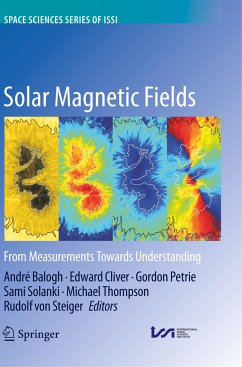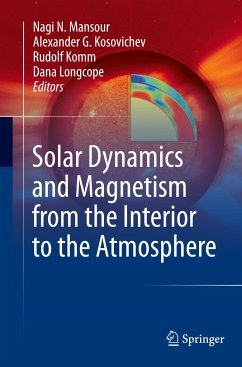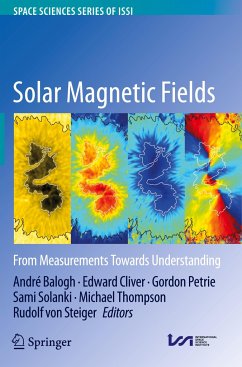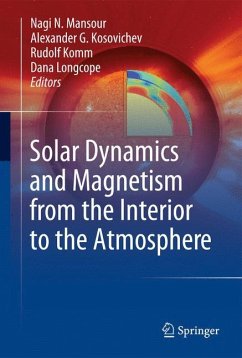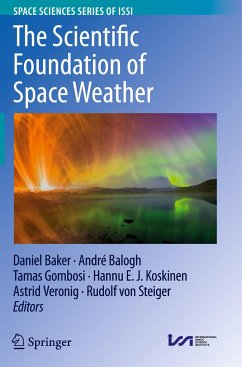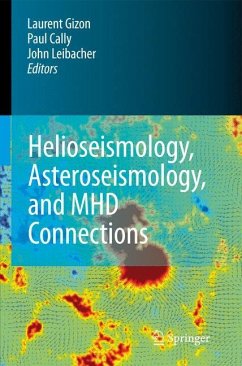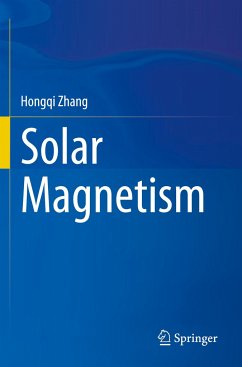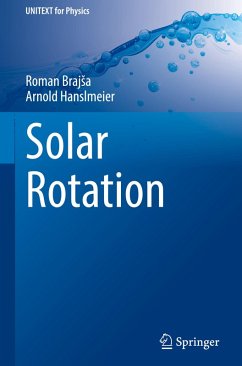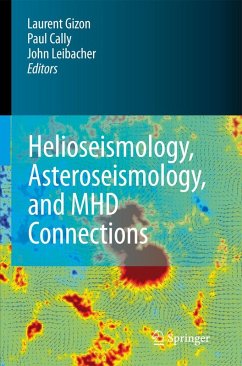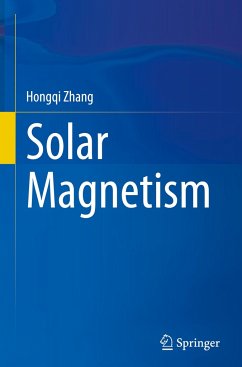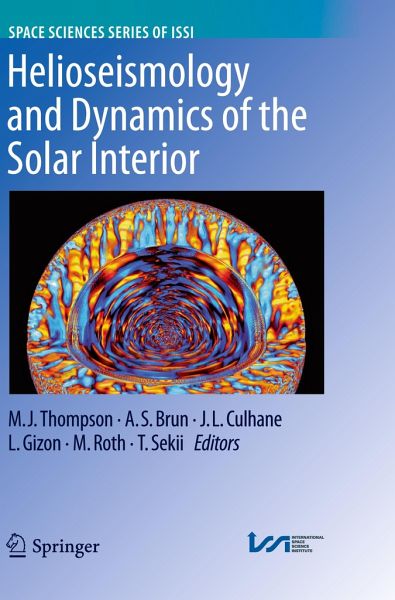
Helioseismology and Dynamics of the Solar Interior
Versandkostenfrei!
Versandfertig in 6-10 Tagen
76,99 €
inkl. MwSt.

PAYBACK Punkte
38 °P sammeln!
The articles republished in this book survey and summarize recent research in helioseismology as well as studies of the interior structure, dynamics and magnetism of the solar interior that are being tested and refined using the helioseismic results.Helioseismology has in the last few decades become a highly productive technique for studying the Sun's interior from observations of the vibrations of its surface. The vibrations are manifestations of resonant modes of the Sun that are continuously excited by turbulent motions in the Sun's convection zone, and a plethora of data have been obtained...
The articles republished in this book survey and summarize recent research in helioseismology as well as studies of the interior structure, dynamics and magnetism of the solar interior that are being tested and refined using the helioseismic results.
Helioseismology has in the last few decades become a highly productive technique for studying the Sun's interior from observations of the vibrations of its surface. The vibrations are manifestations of resonant modes of the Sun that are continuously excited by turbulent motions in the Sun's convection zone, and a plethora of data have been obtained from dedicated ground-based and space-based observing systems.
The book will be of particular interest to researchers and graduate students in the fields of helioseismology, solar interior dynamics and the solar dynamo. It will also be of interest to researchers in solar physics, solar activity, stellar physics, astrophysical fluid dynamics and asteroseismology.
Originallypublished in Space Science Reviews, Volume 196, Issue 1-4, December 2015
Helioseismology has in the last few decades become a highly productive technique for studying the Sun's interior from observations of the vibrations of its surface. The vibrations are manifestations of resonant modes of the Sun that are continuously excited by turbulent motions in the Sun's convection zone, and a plethora of data have been obtained from dedicated ground-based and space-based observing systems.
The book will be of particular interest to researchers and graduate students in the fields of helioseismology, solar interior dynamics and the solar dynamo. It will also be of interest to researchers in solar physics, solar activity, stellar physics, astrophysical fluid dynamics and asteroseismology.
Originallypublished in Space Science Reviews, Volume 196, Issue 1-4, December 2015



